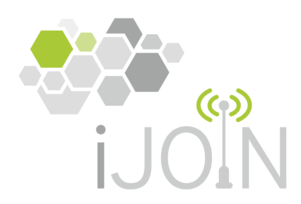iJOIN is an FP7 STREP project co-funded by the European Commission under the ICT theme (Call 8) of DG CONNECT.
Project Data
| Start date: | 01/11/12 |
| End date: | 01/05/15 |
| Cost: | 5714010 € |
| Funding: | 3689000 € |
| Estimated effort: | 517 PM |
| Call identifier: | FP7-317941 |
Summary
Future mobile networks will have to provide an exceptionally greater traffic volume in the near future, expecting an increase of up to 500-1000 times today’s throughput by 2020. Since the improvement in the transmission rate obtained with physical layer techniques is limited, the best solution to increase the system throughput is by spatial reuse. In this sense, the use of very dense, low-power, small-cell networks with a very high spatial reuse appears to provide a promising option to handle future data rate demands. Nevertheless, this approach faces several challenges: first, small-cell deployments will require a high degree of coordination due to strong inter-cell interference. Furthermore, heterogeneous backhaul solutions will be used to connect small-cells and core network, but so far, access and backhaul are individually designed and therefore not optimised jointly.
iJOIN introduces the novel concept RAN-as-a-Service (RANaaS), where RAN functionality is flexibly centralised through an open IT platform based on a cloud infrastructure. iJOIN aims for a joint design and optimisation of access and backhaul, operation and management algorithms, and architectural elements, integrating small-cells, heterogeneous backhaul and centralised processing. This solution will optimise the RAN system throughput and provide services instantly and efficiently in cost, energy, complexity and latency wherever and whenever the demand arises. Additionally to the development of technology candidates across PHY, MAC, and the network layer, iJOIN will study the requirements, constraints and implications for existing mobile networks, specifically 3GPP LTE-A.
Fact Sheet
The iJOIN Fact Sheet can be downloaded here: iJOIN Fact Sheet


